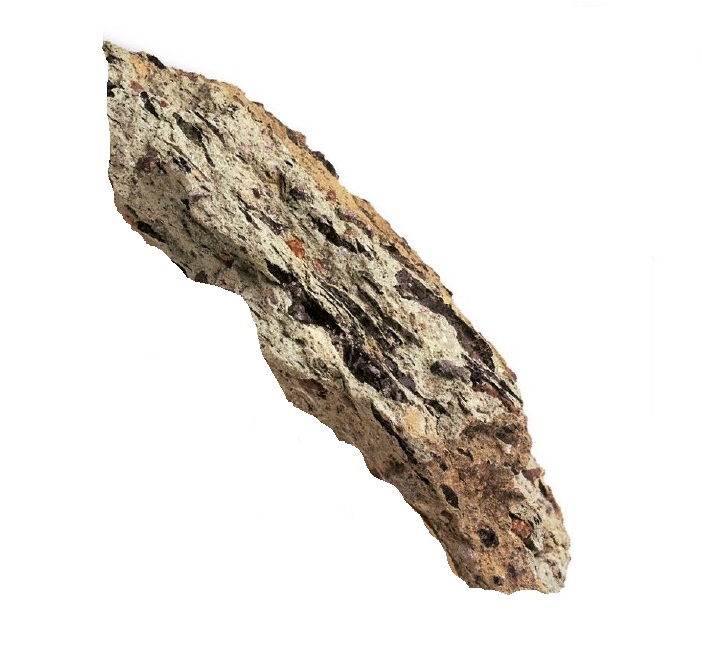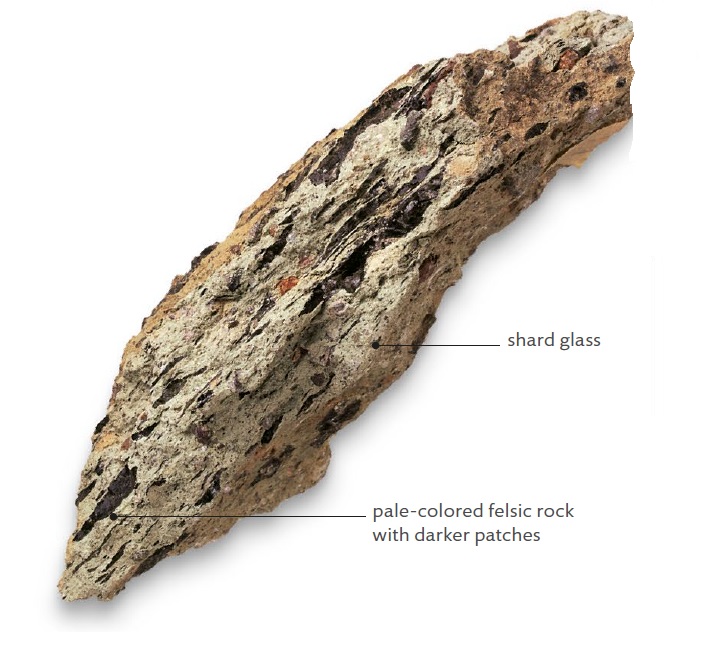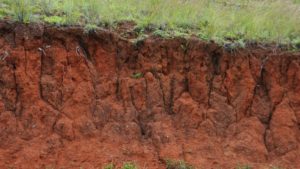Ignimbrite Rock

Introduction
In the intricate realm of geology, Ignimbrite rock stands as a testament to the volatile forces shaping our planet’s surface. This hard, volcanic tuff, enriched with crystal and rock fragments, unveils a captivating narrative. Join us on this geological journey as we delve into the composition, texture, origin, and classification of Ignimbrite rock.
What is Ignimbrite Rock?
Ignimbrite rock, a unique geological entity, is characterized by its composition and texture. It is a volcanic tuff, where crystal and rock fragments are intricately woven into a matrix of glass shards. This amalgamation often leads to the loss of the original texture, creating a mesmerizing geological tapestry. Notably, Ignimbrite shares a similar composition to rhyolite, further adding to its geological significance.

Composition and Similarity to Rhyolite
Ignimbrite rock mirrors the composition of rhyolite, establishing a connection with one of the most abundant volcanic rocks. Understanding this similarity opens a gateway to comprehend the geological processes that mold and shape these formations.
Texture: Unveiling the Banded Structure
The texture of Ignimbrite rock adds a layer of complexity and visual appeal to its geological profile. Frequently, it manifests as a fine-grained rock with a distinctive banded structure. In the field, observers may witness wavy flow-banding through exposures, providing insights into the dynamic history of its formation.
Glass Shards and their Curvature
One of the defining features of Ignimbrite rock is the presence of curved glass shards. These shards bear witness to their formation around gas bubbles during the original frothy flow of ash, tuff, and lava droplets. This unique characteristic adds a fascinating dimension to the geological narrative embedded in Ignimbrite formations.
Origin: A Chronicle of Explosive Events
The genesis of Ignimbrite rock unfolds as a deposit from a rapidly moving, turbulent, ignited pyroclastic density current. These currents, associated with especially violent eruptions, unleash clouds of incandescent gas and lava drops. Moving at great speed close to the ground, these currents leave behind a legacy in the form of Ignimbrite formations.
Associated Volcanic Eruptions
Ignimbrite rock is intricately linked to volcanic eruptions, particularly those of a violent nature. The association with incandescent gas and lava drops underscores the intensity of the geological processes responsible for shaping this unique rock. Exploring the dynamics of these eruptions provides a deeper understanding of the conditions that give rise to Ignimbrite formations.
Classification: Understanding the Igneous Identity
In the grand classification scheme of rocks, Ignimbrite finds its place within the igneous group. It emerges as an extrusive rock, showcasing its origin in volcanic environments. Let’s explore key characteristics that define Ignimbrite rock within the broader igneous classification.
Key Characteristics
- Grain Size: Fine
- Crystal Shape: Anhedral
- Classification: Felsic
- Occurrence: Volcano
- Color: Light, Medium
Exploring the Igneous Identity
Understanding Ignimbrite rock within the igneous framework provides valuable insights into its formation and characteristics. The fine grain size, anhedral crystal shape, and felsic classification collectively contribute to the distinctiveness of Ignimbrite. Its occurrence in volcanic settings, coupled with light to medium colors, further refines our comprehension of this geological marvel.
Conclusion: Unraveling the Geological Enigma
In the realm of geology, Ignimbrite rock emerges as a captivating enigma, weaving together crystal fragments, rock components, and glass shards into a volcanic tapestry. From its composition to texture and origin, each facet tells a story of explosive eruptions and turbulent currents. Understanding its classification within the igneous group adds a layer of clarity to the intricate geological identity of Ignimbrite rock.
Embark on this geological exploration, and let the layers of Ignimbrite rock unfold before you, revealing the dynamic forces that have shaped our planet’s surface over millennia. As we conclude our journey, the volcanic tapestry of Ignimbrite beckons, inviting further exploration into the profound mysteries of our Earth’s geological history.





